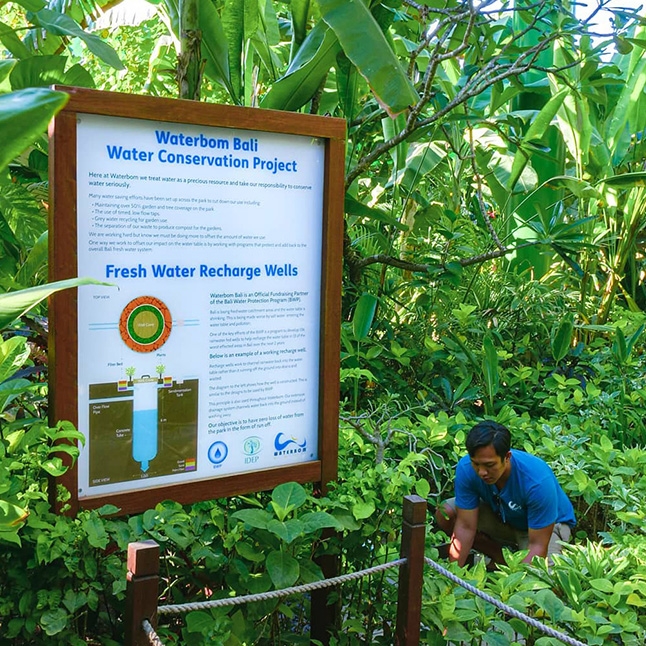Waterbom Bali Champions Sustainability with 2033 Net Zero Emission Goal
In an impressive stride towards environmental stewardship, Waterbom, the iconic waterpark located in Kuta, Bali, has publicly committed to reaching net zero emissions by 2033. This bold initiative not only highlights the park's dedication to sustainable practices but also sets a precedent for other organizations worldwide.
Waterbom is beloved by locals and tourists alike, attracting a diverse crowd with its thrilling attractions and commitment to safety and sustainability. Under the leadership of CEO Sayan Gulino, Waterbom has embraced innovative sustainable technologies and design upgrades to ensure it remains an eco-friendly destination.
During the park’s 30th anniversary celebrations, Gulino shared their enhanced sustainability targets, stating, "We're pushing the boundaries as we plan to be the first Asian tourism enterprise and the first global waterpark to achieve net zero by 2033." He emphasized the transition to 100% renewable energy and adopting methods to significantly reduce carbon emissions. Transparency in their sustainability journey is a priority, with regular public updates and data sharing promised.
This ambitious undertaking involves a meticulously crafted strategy developed in partnership with top environmental consultants and aligns with the Science Based Targets initiative (SBTi). Waterbom is currently the only SBTi-approved tourism entity in Indonesia, showing their serious commitment to global environmental standards.
The park's sustainability efforts are supported by a partnership with Eco-Mantra, focusing on energy efficiency and emission reduction strategies, including switching to electric appliances and enhancing water pump efficiency. Maitri Fischer, CTO of Eco-Mantra, highlighted the significant investment needed for these initiatives but also underscored their feasibility and importance for long-term environmental impact.
Waterbom’s sustainability ethos is deeply ingrained in the local Balinese philosophy of Tri Hita Karana, which emphasizes harmony among people, nature, and the spiritual world. This philosophical backbone fuels their mission to protect and preserve Bali's natural beauty.
The influence of Waterbom’s sustainable practices extends to the broader Bali real estate market, especially in areas like Canggu. The industry is experiencing a surge in eco-friendly developments. Properties increasingly feature solar panels, water recycling systems, and sustainable building materials, appealing to environmentally conscious residents and investors.
This holistic approach to sustainability is reshaping Bali's landscape, making it a model for responsible tourism and property development. Integrating green practices across sectors ensures that Bali retains its allure as a paradise for today’s visitors and future generations, reinforcing the island's commitment to environmental responsibility and innovation.




Comments
Post a Comment